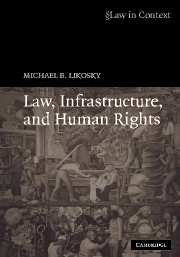4 - Iraq
Published online by Cambridge University Press: 09 December 2009
Summary
Introduction
Infrastructure projects stand on the frontline of U.S. attempts to maintain influence over Iraqi political and commercial affairs. If, as many commentators assert, the war was in part about oil, then it is unsurprising that the postwar reconstruction is also in part about safeguarding oil supplies and laying the infrastructure necessary to bring them to international markets. Controlling the country's strategic assets also involves winning the peace, delivering on wartime promises to the Iraqi public. The United States here is attempting to power the country, supply vital water supplies, build bridges, lay railway and telecommunications lines, and also ensure safe travel. It is doing this through transnational public-private partnerships (PPPs); the financing is public and foreign, whereas the rehabilitation and building of projects is domestic and foreign, public and private. Realizing the importance of infrastructure in postwar plans, insurgents in Iraq have targeted projects, blowing up pipelines, disabling power, and exploding roads.
Are insurgents signaling with attacks that the infrastructure projects are impediments to their own brand of self-determination, an expression of human rights freed from foreign intervention? Or does the application of a human rights framework to understand the insurgent attacks obscure another set of intentions? Instead, do human rights figure into Iraq solely by reference to U.S. attempts to deliver on human rights promises to Iraqis through an international financial aid-based infrastructure program carried out by private companies?
- Type
- Chapter
- Information
- Law, Infrastructure and Human Rights , pp. 69 - 88Publisher: Cambridge University PressPrint publication year: 2006



